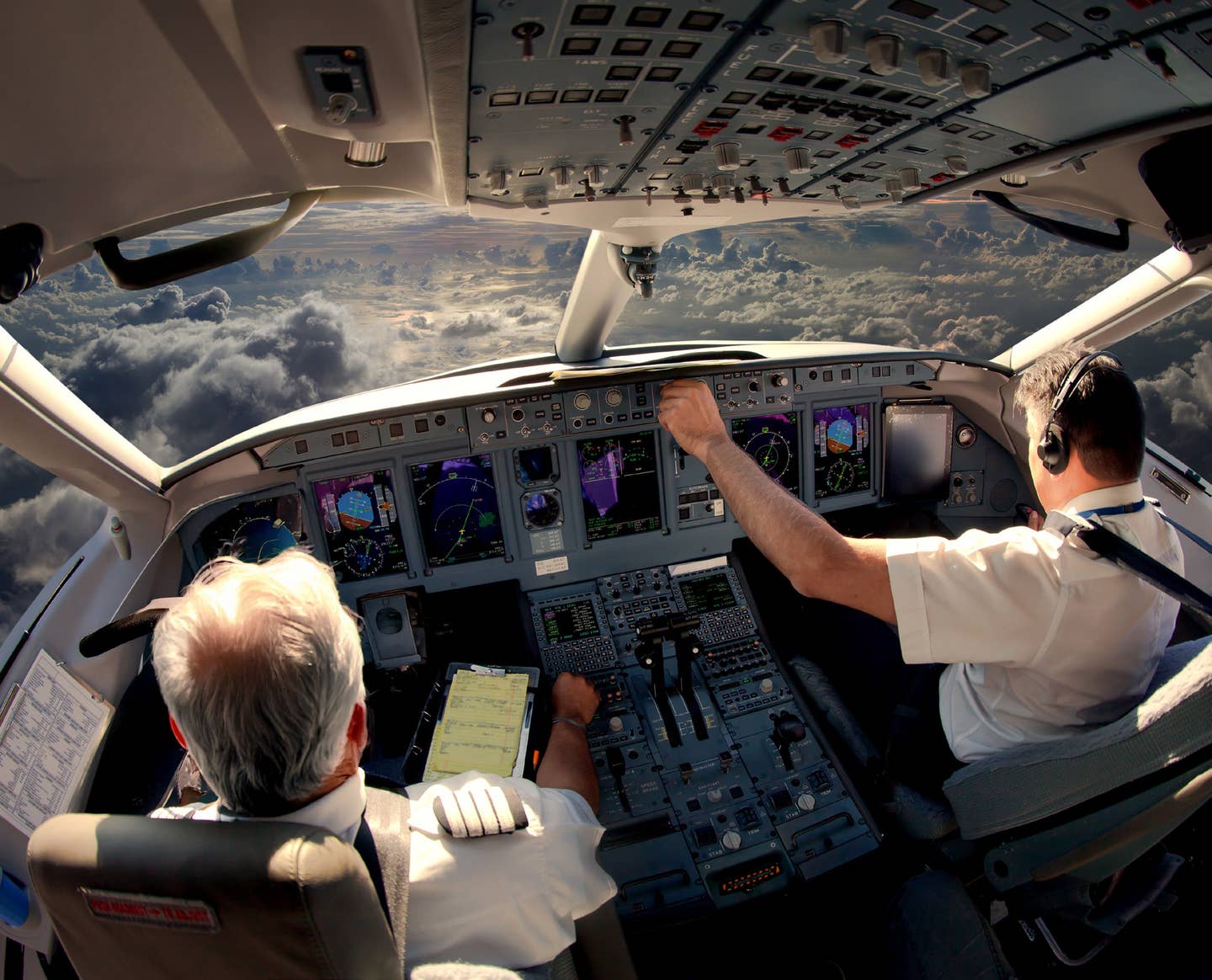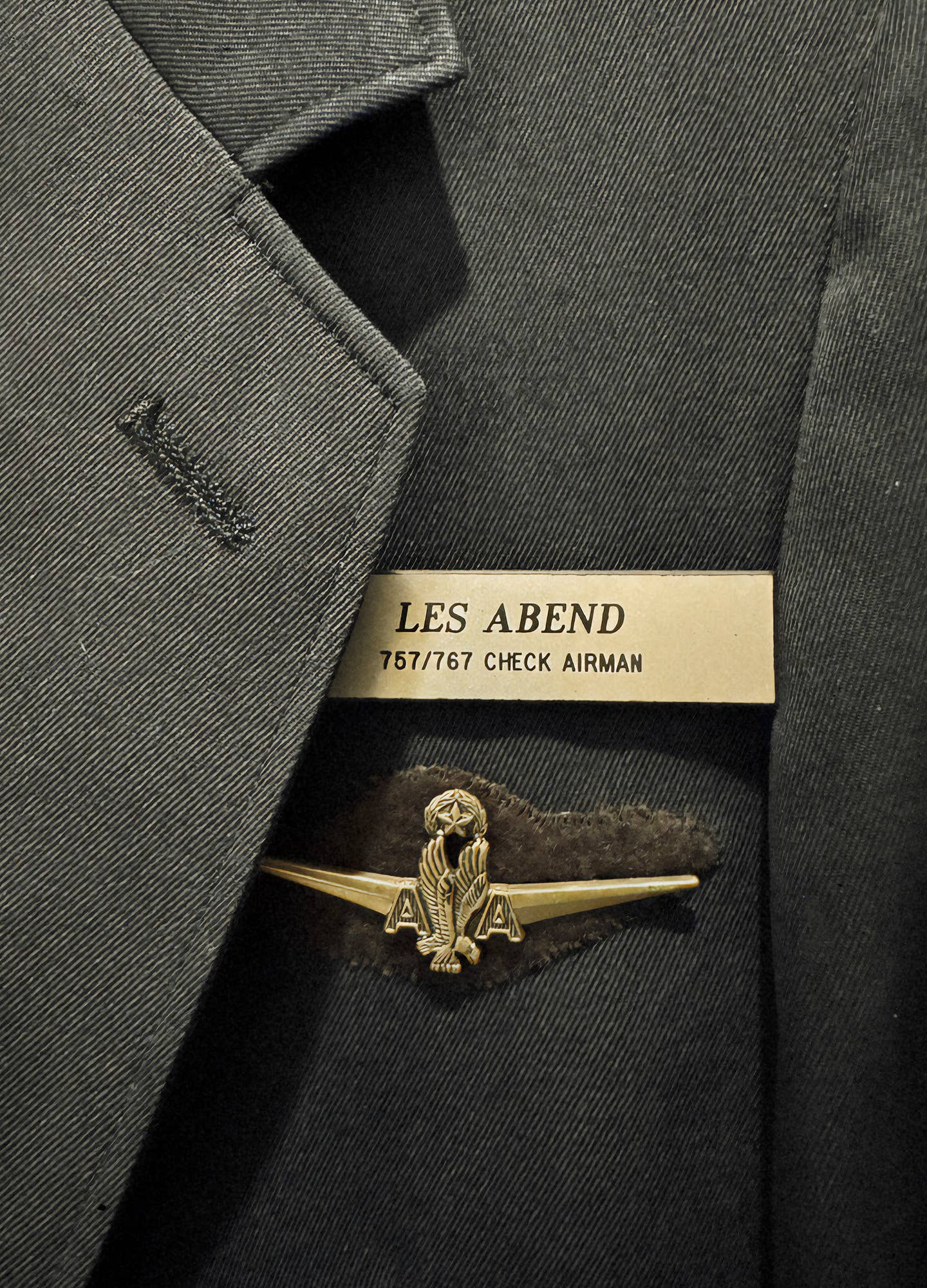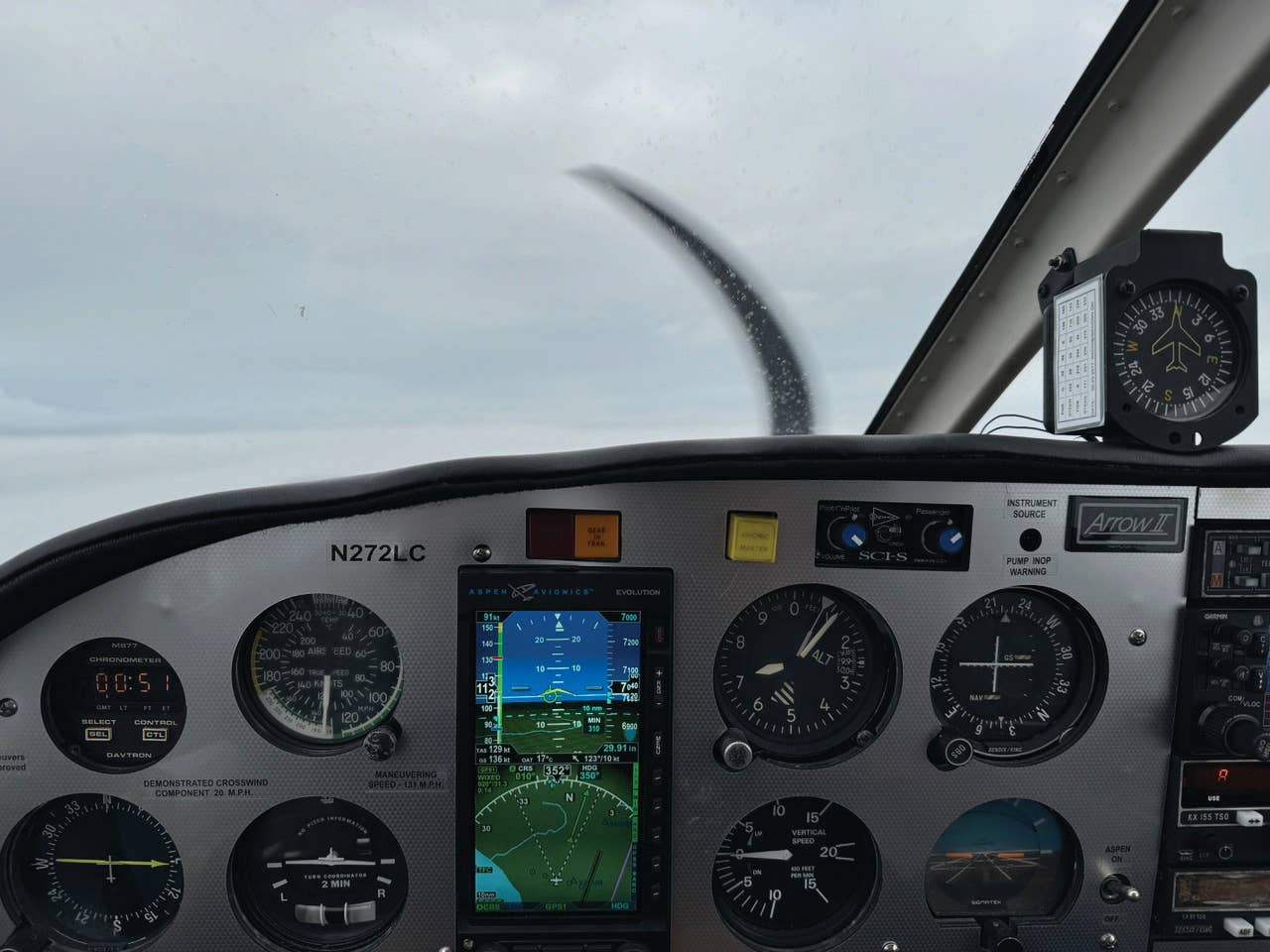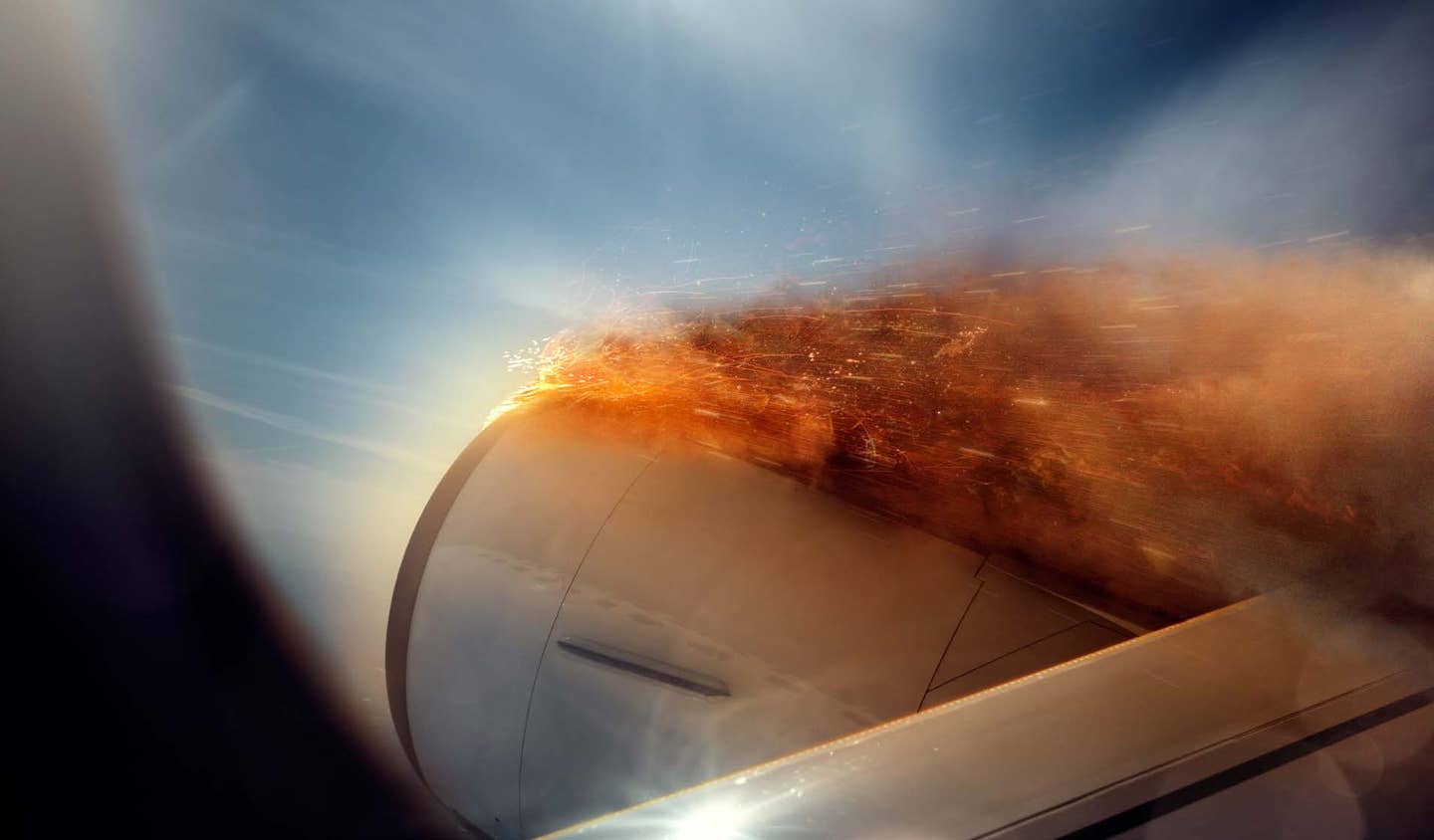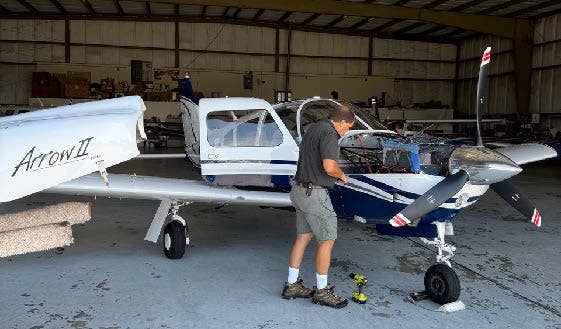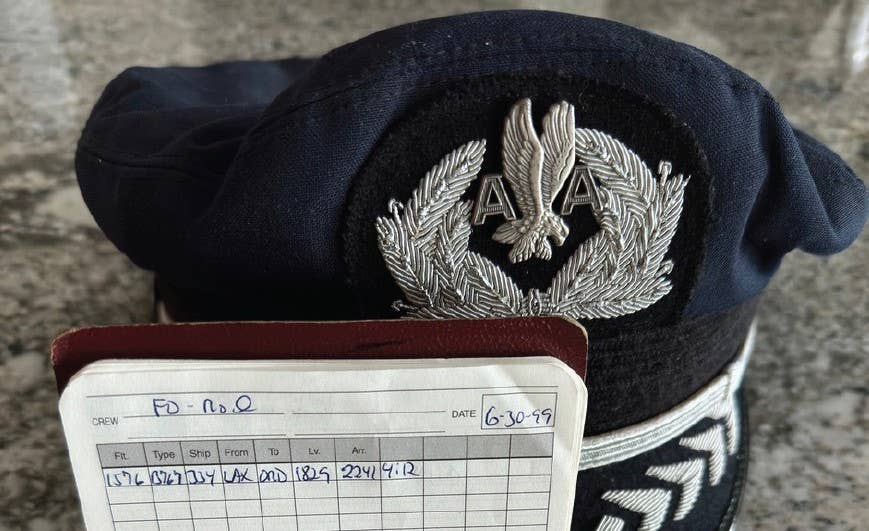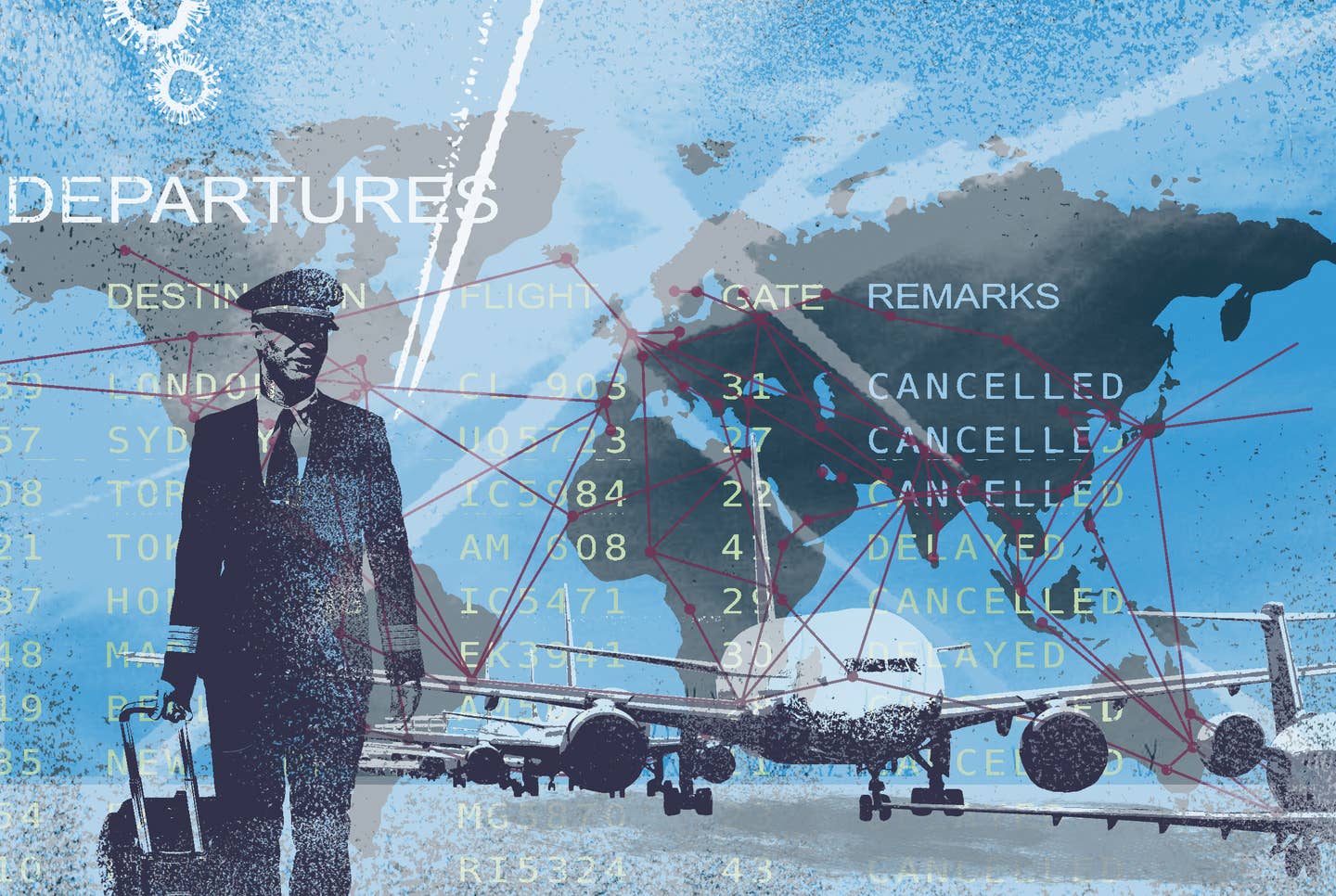
Illustration by Clare Nicholas
Oftentimes, I am asked the question, “Do you miss flying for the airline?” I sense an expectation that the reply should be an affirmation that my profession defined my identity. For some pilots that might be true. Perhaps the type-A captain mentality has become ingrained in my character. (Camera pans to spouse and friends: Chins nodding; eyes rolling.)
The simple answer is, “No, I don’t miss the airline.” Most folks assume my response is because of COVID-19, inclusive of lunatic passengers, inconsistent schedules, and more. I don’t envy my colleagues, but virus protocols wouldn’t have dictated my early departure had I still been employed. The industry is not a stranger to turmoil, nor are we strangers to the resiliency required to perform the mission of safely flying people, regardless of distractions.
In the glamorous age of the ’60s, the airlines began to transition from complex propeller-driven airplanes to the sophistication and speed of the turbojet. Though the transition was a positive step in air travel, higher altitudes and significantly faster airplanes involved drastic changes for an evolving air traffic control system, growing airport terminals, airline operations, overall training, and pilot skill sets. Were older and more senior pilots capable of transitioning to jets? How would hourly pay be reformulated, now that it took less time to fly from New York to Chicago? In today’s environment the issues may be miniscule, but they created turmoil at the time.
Deregulation was introduced in 1978. Carriers scrambled to fly routes that weren’t accessible in the regulated environment, some biting off more than they could chew. Establishing profitable fares for these routes has become
an artful science of mysterious mathematics.
The turmoil of deregulation continued into the ’80s. Though new carriers attempted to enter the market—e.g., People Express—the casualties were big-name companies that failed to compete: Braniff, Pan Am, and Eastern. Bankruptcies were part of the equation. Furloughed pilots had the option of seeking employment with newer airlines, accepting a position at the bottom of another airline’s seniority list, or simply finding another career.
My former employer, American Airlines, weathered the storm by better defining its market. The company and the union agreed to implement the dreaded “B scale,” a permanent lower-tiered pay structure for new-hire pilots. Other airlines adopted their own versions. The incentive for pilots already on the payroll was rapid advancement.
“So, why did I retire early?”
The plan created a second class of pilots, however. The union felt the pressure of a potential revolt when the number of second-class pilots began to outnumber the others. The airline was becoming profitable with or without the lower pay scale. Within five years, the B scale had all but been eliminated…well, with some caveats.
I accepted the B scale, gambling that it would disappear. American had been my dream since I was 6 years old. However, I soon became despondent enough to consider resigning based on a divisive attitude from some incumbents who believed that “B-scalers” existed only because of the lower pay. They inferred we wouldn’t have been hired based on our own merits—hiring boom or not.
The challenge in the ’90s became the glut of carriers competing in over-saturated markets at high-density airports. On a blue-sky day, it was not uncommon at New York’s LaGuardia airport to crawl an inch at a time in a one-hour departure conga line. Additionally, in the same decade, a handful of accidents changed our way of doing business from loss-of-control training to deicing procedures, and terrain awareness operation.
And then, of course, 9/11 changed not only our threat procedures but our psyche. The old philosophy of simply cooperating with a hijacker vanished almost overnight—we were to fight for control of the cockpit at all costs. Airline pilots lobbied for guns in the cockpit. The Federal Flight Deck Officer (FFDO) program was created.
As the airlines attempted to recover from the financial effects of 9/11 and a self-induced market of inefficient, over-saturated frequency, Chapter 11 became the industry buzzword. Pay cuts were another solution. Pilots were furloughed. Retirement funds were decimated. Carrier consolidation became the next progression. The painful merging of seniority lists made no one happy.
Now comes COVID-19: Mask mandates. Drastic schedule reductions and irregularities. Restricted layover protocols. As for the federal vaccine mandate, contrary to the media’s focus, the issue is not “get the shot or get out,” but rather how a pilot is “accommodated,” if he or she is eligible for a medical or religious exemption. Additionally, pilots don’t react well to being forced into compliance. They need time to analyze. Some hold the concern that if an adverse long-term effect from the vaccine is discovered, will the carrier consider disability pay? For most carriers, an unpaid leave of absence is not an option—they need working employees. So, the solution could be in the form of regular testing for those with exemptions.
For me, the vaccine would be a no-brainer. It’s a mitigation of risk to protect passengers, crew, and fellow employees from a common enemy, just like the FFDO program in which I participated. Yes, the FFDO program was voluntary, but allowing a lethal weapon in the cockpit was mandatory, whether you were the one carrying or not. Initially, I thought the risk outweighed the threat, but I reconsidered when the program proved its worth.
So, why did I retire early? After 34 years, I had reached the pinnacle of my career. Something in my soul said it was time to go. I am truly fortunate that I could choose my own time to make that final retirement flight because so many of my colleagues had no idea they had actually flown their last trip.
Editor's Note: This column originally appeared in the Q1 2022 issue of FLYING.

Sign-up for newsletters & special offers!
Get the latest FLYING stories & special offers delivered directly to your inbox

